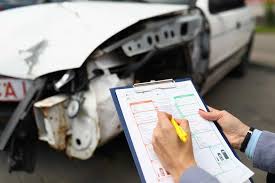Buying a salvage title car might seem like a tempting option due to its potentially lower price tag, but there are significant drawbacks that could outweigh the initial savings. Salvage title cars are vehicles that have been damaged to the point where the insurance company deems them a total loss. While purchasing a salvage title car can sometimes work out fine, it’s crucial to consider the potential risks involved. Here are four compelling reasons why avoiding buying salvage title cars might be a prudent decision:
1. Uncertain and Potentially Hidden Damage
Salvage title cars have undergone significant damage, which could include anything from floods, accidents, fires, or other substantial issues. Even with thorough inspections, some damages might remain hidden or are difficult to detect. There’s a risk that certain parts of the vehicle might have been repaired inadequately or overlooked during the restoration process. This could compromise the car’s structural integrity, safety features, or essential systems like the engine, transmission, or electrical components. Such hidden damage can lead to unexpected and costly repairs down the line, negating any initial cost savings.
2. Higher Insurance Premiums and Limited Coverage
Insuring a salvage title car can be considerably more challenging and expensive than insuring a vehicle with a clean title. Many insurance companies are cautious about providing comprehensive coverage for salvage title cars due to their history of damage. Even if insurance is obtained, the coverage might be limited, excluding certain types of damages or offering lower payouts in case of an accident. Additionally, some insurance providers might outright refuse coverage for salvage title vehicles, leaving owners with fewer options and potentially higher premiums from specialized insurers.
3. Difficulty in Resale and Depreciation
Salvage title cars come with a stigma in the resale market. When you decide to sell or trade in a salvage title vehicle, its history can significantly diminish its market value and appeal to potential buyers. Many buyers are wary of purchasing salvage title cars due to the uncertainty surrounding their previous damages and repairs. Consequently, selling a salvage title car can be challenging, and you might have to settle for a significantly lower price than what you originally paid. Moreover, salvage title cars typically depreciate faster than their clean title counterparts, leading to a more considerable loss in value over time.
4. Potential Safety and Reliability Concerns
Safety should always be a top priority when choosing a vehicle. Salvage title cars might have compromised structural integrity or repaired safety features that could impact their overall safety in the event of another accident. Additionally, the repairs done on salvage title cars might not meet manufacturer specifications, potentially affecting the vehicle’s reliability and performance. This compromise in safety and reliability could pose risks to both the driver and passengers, making it a potentially unsafe choice compared to a car with a clean title.
In conclusion, while purchasing a salvage title car might seem financially appealing initially, the risks and uncertainties associated with its history of damage often outweigh the cost-saving benefits. Considering the potential safety hazards, hidden damages, insurance challenges, and depreciation concerns, opting for a vehicle with a clean title is typically a safer and more reliable choice in the long run. Always conduct thorough research and consider seeking the advice of a trusted mechanic or automotive expert before making a decision to purchase a salvage title car.

